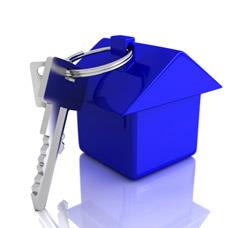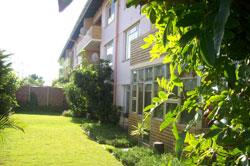If you have money and want to own property, buy now instead of renting as this is cash wasted according to some property investors and experts.

If you have money and want to own property, buy now instead of renting as this is cash wasted according to some property investors and experts.
Michael Bauer, general manager of IHFM, says property economists who insist on renting rather than buying see property losing value in real terms in the next 18 to 24 months.
He says these property economists forget three fundamental things:
- Short-term price fluctuations generally do not matter in property because property investments are medium- to long-term and current prices are at an all-time low.
The motto “buy low to sell high” is absolutely relevant now.
- Interest rates which are currently at an all-time low will not stay at these levels forever.
A buyer has the option to fix the interest rate for 12, 18, 24, 36 or 48 months at very low levels.
There is a real risk that a loan negotiated in 2013 might be at a 1 to 1.5 percent higher rate than one secured now.
- Experience shows that although there is logic in the concept of renting now so as to save for a big deposit later, this is very seldom done by tenants.
All too often those who rent use up all their spare cash to finance their high-flying lifestyles and save little or nothing whereas the obligation to pay off a bond with severe penalties incurred for late or missed bond repayments almost always results in the bond payer exercising restraint, budgeting and disciplining his monthly outlays.
Bauer says worldwide especially in Germany, it has been found that those who have not owned or paid off their homes by the time they retire or can no longer work tend to end up paying 50 to 70 percent of their pensions for rent.
“Rent, even in bad times will almost always rise year by year whereas pensions move up very slowly, if at all.”
If you wish to avoid hardship in your old age and to have an asset you can pass on to your children, plan now to own and pay off your home before or by the time you retire, he says.
He says now is a good time to apply for a home loan because the banks’ appetite for lending has increased in line with their greatly improved skills in assessing a creditor’s financial position and credit records.
This means those with a poor payment history should put matters right before applying for a home loan, but if their financial and job positions are sound, they now stand a better chance of being successful.
A majority of today’s new homeowners are targeting the R400 000 to R700 000 market and this is also the sector in which capital growth is fastest with the price escalation exceeding inflation, he says.
As an example, he says the Bardale Village near Kuils River in Cape Town is a prime example of a fast growing development.
Two bedroom units bought in 2005 for R206 000 are now sold for R425 000, having achieved a 15 percent per annum in capital growth.

Geffen says that ooba’s home loan application volumes were 41 percent higher in January 2012 compared to January 2011 and the value of home loan approvals increased 58 percent y/y.
To date, 670 homes have been built and sold at Bardale and these are always in their own gated estates with a 24/7 controlled access.
On offer at Bardale Village are homes ranging from two to four bedrooms, varying in size from 51 to 127 square metres with today’s prices ranging from R429 990 to R719 990, he says.
Meanwhile, the January oobarometer price index positive year-on-year (y/y) growth of 6.7 percent, highest y/y price increase since July 2010, when a y/y price appreciation of 9.8 percent was recorded.
The average house price rose to R850 589 from R797 011 a year earlier and the average purchase price among first-time buyers showed y/y increase of 12.8 percent to R650 574 from R576 675 a year earlier.
Saul Geffen, chief executive officer of ooba says the increased activity in the first-time buyers market is reflecting in the consistent y/y price growth recorded each month since May 2011.
He says 50.92 percent of applications received in January comprised of first-time buyers, up from 48.18 percent recorded in January 2011.
Geffen says that ooba’s home loan application volumes were 41 percent higher in January 2012 compared to January 2011 and the value of home loan approvals increased 58 percent y/y.
The report also revealed that the average approved home loan size increased by 6.3 percent y/y in January to R722 900 from R680 195 in January 2011.
The average deposit as a percentage of purchase price increased by 2.7 percent y/y to R127 689, equivalent to an average deposit of 15.0 percent of the property purchase price.
Whether it's location or price you are after, buying property in Cape Town’s Bergvliet is said to be a decision property buyers should think about.
Bergvliet is the fast-growing popular suburb and property values have performed better than in many Cape Town areas, says John Weston, Rawson franchisee in Bergvliet and surrounding areas.
The huge popularity of the areas results from an increasing number of upwardly mobile people who formerly may have lived in “disadvantaged” suburbs as not only prestigious, but also just affordable to the new middle class, he says.
Freestanding homes in Bergvliet are priced between R1.5million to R3. 4 million, in Meadowridge from R1.4 to R3 million, Diep River from R400 000 to R2.5 million, Plumstead from R900 000 to R2.5 million, Southfield from R600 000 to R1.2 million and at Heathfield and Alphendale from R520 000 to R1. 8 million.

This two bedroom flat measuring 78 square metres at a secure complex in Heathfield (lower Bergvliet) is selling for R599 000 through Rawson Properties.
Weston says apartments in Heathfield sell for as little as R400 000 and are quickly snapped as they come into the market.
Property investors are reportedly eyeing homes in these areas with buyers in less expensive areas such as Southfield achieving 7.5 percent nett growth from day one.
Weston says a two bedroom apartment recently sold in Diep River for R650 000 achieves a monthly rental of R5 000.
Ulrik Strandvik, a director of Gunstons Attorneys says it is important that home buyers should research the total costs involved in a property transaction.
He explains that the South African law stipulates that transfer duty (i.e. the tax on a property transaction) becomes payable as soon as a sale agreement is signed.
The Agreement of Sale will in most cases state that the costs (which include the transfer duty and the attorneys’ fees and disbursements) are payable on demand by the conveyancer.
These costs are often called for by the conveyancer at the initial consultation with the buyer, which may take an unprepared buyer by surprise, he says.
“This is true when a buyer is relying on funds which are tied up in the sale of his/her existing home, which is to be, registered simultaneously with his/her purchase.”
Where a buyer is caught out by the timing of the payment of transfer duty, it is often possible to arrange bridging finance or a loan and attorneys can be useful in introducing buyers to those capable of granting such monies, he says.
“Home buyers must do their homework regarding the costs and the payments required before putting in an offer so they are not caught in a difficult legal situation.”
Strandvik says the South African transfer duty is heavily weighted in favour of the poor and is seen as a significant way of raising extra revenue from the more affluent sections of the population.
The total transfer duty in South Africa today provides very useful State income, but is thought by some to be a put a dampener on the residential market.
Transfer duty is not charged on homes valued below R600 000.
For those valued between R600 000 and R1 million, the transfer duty is 3 percent while properties priced from R1 million to R1.5 million pay 5 percent transfer duty and those s above R1.5 million are charged a transfer duty of 8 percent, he says. – Denise Mhlanga









